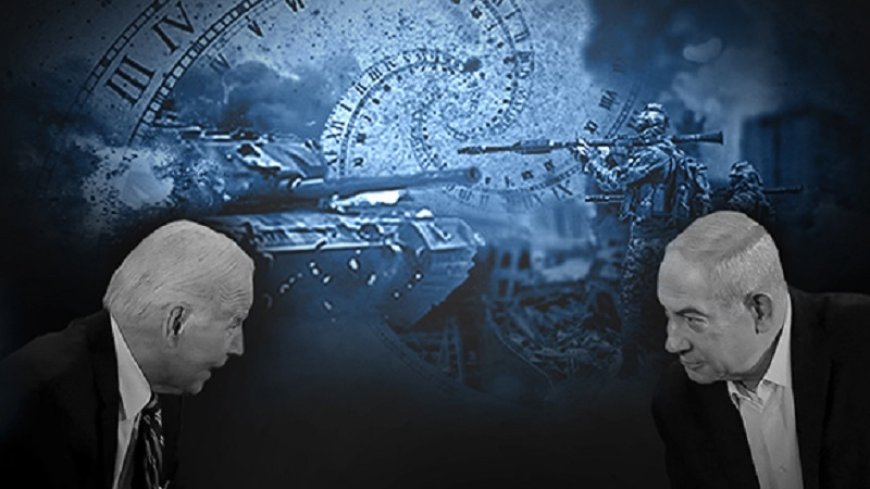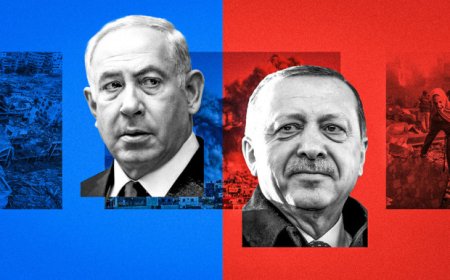Operation Al-Aqsa Storm: How October 7th, 2023, Redefined the Middle East

By: A. Yeganeh
Today commemorates the heroic Operation Al-Aqsa Storm, an event that, as asserted by numerous global analysts, marks a watershed moment for the Palestinian resistance, splitting history into two eras—before and after this monumental operation. Last year saw the inception of a new intifada orchestrated by the Axis of Resistance, meticulously conceived with an entirely Palestinian blueprint, astonishing global observers.
The incident of October 7th, 2023, has profoundly altered the geopolitical landscape of the Middle East, with far-reaching consequences that will only become more apparent in the coming years. Many leading statesmen agree that the dimensions of this event transcend the region, drawing in global powers, each deeply entangled in the repercussions of this historic moment. This discourse aims to delve deeper into the incident, though many facets will undoubtedly unfold as time progresses.
Unprecedented Global Isolation of Israel
Prior to the October 7th event, Israel, fortified by its media monopoly, projected an image of the Jewish inhabitants of occupied Palestine steeped in victimhood. This constructed narrative, designed to evoke sanctity and a veneer of innocence, shrouded the actions of the regime’s leadership, who wielded this portrayal to justify their policies. Yet, following Israel’s vicious and barbaric attacks on innocent Palestinians, the global public began to unravel the falsity of this media-crafted facade, exposing the regime’s true criminal nature. This newfound awareness catalyzed unprecedented protests and demonstrations in the West, as images of European and American citizens protesting against Zionist atrocities broke through Israel’s once-ironclad media grip. The global voice of solidarity with the oppressed Palestinian people resonated powerfully, shattering the long-standing monopoly of Zionist-controlled narratives.
Greater Solidarity Among the Islamic Ummah
Prior to the Operation Al-Aqsa Storm, the Muslim world in the Middle East was engulfed in internal discord, often driven by the divisive machinations of their Western-aligned governments. Some governments were even teetering on the verge of recognizing Israel, and the domino of normalizing relations between Islamic states and the Zionist entity appeared to be nearing its inevitable conclusion. However, the seismic events of the IsraelAl-Aqsa StormIsrael operation abruptly halted this process. The prospect of normalizing relations with Israel became fraught with doubt as Islamic and Arab governments, along with the region’s Muslim populace, openly expressed renewed opposition to the notion. The rising tide of dissent among the Muslim masses of the Middle East bolstered the unity of the Islamic Ummah concerning the Palestinian cause, stymieing the progress of those Arab governments inclined towards reconciliation with Israel.
Shattering the Myth of Israel’s Invincibility
One of the most potent instruments of power that Israel has consistently flaunted is its intelligence and security apparatus, which it leveraged to project an aura of invincibility. However, the security debacle that Palestinian fighters inflicted upon this vast and formidable structure during the October 7th operation represents a historic and humiliating defeat. The fact that such an extensive and audacious operation could be conceived and executed from within the confines of the Gaza Strip inflicted a grievous blow to the regime’s expansive security network. The regime’s perceived invulnerability, long etched into the collective consciousness of the Arab and Muslim worlds, was shatter once for all.
Conclusion: A New Chapter in the Struggle against Zionism Across the Middle East?
The events of October 7th have undeniably triggered a profound transformation across the Middle East, with ripples extending far beyond the region. Israel, in the aftermath of the assault, has experienced a psychological collapse, leading to a full-scale effort by Netanyahu’s extremist government to contain the surging crisis. The government devised an aggressive strategy, targeting the people of Palestine, Lebanon, Syria, and Iran, in an attempt to stem the growing resistance.
The core tenet of this strategy was the assassination of key figures within the Axis of Resistance, combined with indiscriminate bombardment of civilian areas in an effort to apply maximum pressure. At the heart of Netanyahu’s agenda was the targeted killing of figures such as Sayyed Hassan Nasrallah, the steadfast leader of Hezbollah, Ismail Haniyeh, the resilient leader of Palestinian resistance, and other military commanders within the Resistance movement. However, these attempts at blind assassination backfired, leading instead to the emergence of even more hardened military leaders. In Palestine, Yahya Sinwar, a military strategist known for his uncompromising nature, ascended to leadership. Similarly, Hezbollah in Lebanon activated its military branches with impeccable precision, ensuring that not even the slightest disruption occurred.
Over the past year, Israel has endured profound losses across media, military, and economic fronts. The setbacks inflicted during this period are so severe that any attempts at repair in the near term appear utterly futile. The consequences of the October 7th operation have set in motion a new era—one where Israel, having once projected an aura of invincibility, now grapples with the specter of decline, both within the region and across the wider geopolitical stage.













































